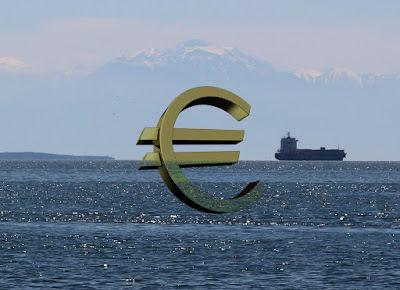Definition of a recession
Recession is often defined as two consecutive quarters of GDP contraction. Well it's not true in the US. The official definition, provided by The National Bureau of Economic Research, is:
"A recession is a significant decline in economic activity spread across the economy, lasting more than a few months."
And this is not exactly the same. The NBER goes on to say:
“ Most of the recessions identified by our procedures do consist of two or more quarters of declining real GDP, but not all of them. Our procedure differs from the two-quarter rule in a number of ways. First, we consider the depth as well as the duration of the decline in economic activity. Recall that our definition includes the phrase, ‘a significant decline in economic activity.' Second, we use a broader array of indicators than just real GDP. One reason for this is that the GDP data are subject to considerable revision. Third, we use monthly indicators to arrive at a monthly chronology.”
The main problem is that this definition is "a posteriori", when it becomes irrelevant: at the time all the economic data have been gathered, we are either deeper into the recession (in which case it is obvious to everybody) or on the track of rebounding (in which case it doesn't matter). Economic statistics are very often revised several times after they have been published. When will technology provide us and the economic leadership (Central Banks, Governements and Companies) with reliable indicators regarding the state of the economy?
"A recession is a significant decline in economic activity spread across the economy, lasting more than a few months."
And this is not exactly the same. The NBER goes on to say:
“ Most of the recessions identified by our procedures do consist of two or more quarters of declining real GDP, but not all of them. Our procedure differs from the two-quarter rule in a number of ways. First, we consider the depth as well as the duration of the decline in economic activity. Recall that our definition includes the phrase, ‘a significant decline in economic activity.' Second, we use a broader array of indicators than just real GDP. One reason for this is that the GDP data are subject to considerable revision. Third, we use monthly indicators to arrive at a monthly chronology.”
The main problem is that this definition is "a posteriori", when it becomes irrelevant: at the time all the economic data have been gathered, we are either deeper into the recession (in which case it is obvious to everybody) or on the track of rebounding (in which case it doesn't matter). Economic statistics are very often revised several times after they have been published. When will technology provide us and the economic leadership (Central Banks, Governements and Companies) with reliable indicators regarding the state of the economy?


